|
|
|
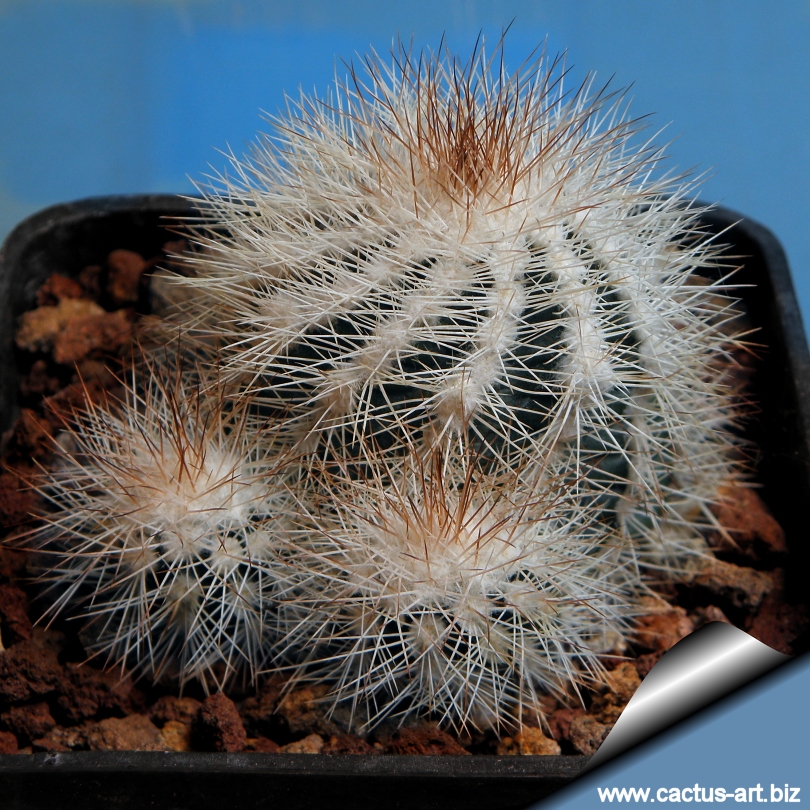
Echinocereus
reichenbachii var. baileyi albispinus FH613
Troy. Oklahoma. USA, 100 m.
This is one of the most attractive species of this genus.
Note: Echinocereus
reichenbachii var. albispinus is supposed to be intermediate
between
E. baileyi and E. reichenbachii ssp. caespitosus.
|
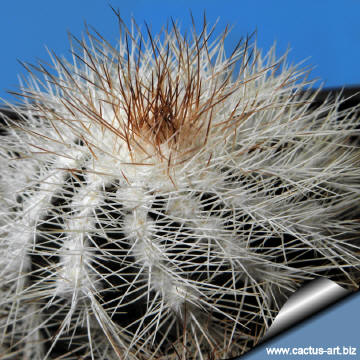 |
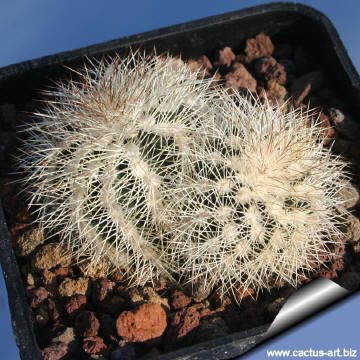 |
.
|
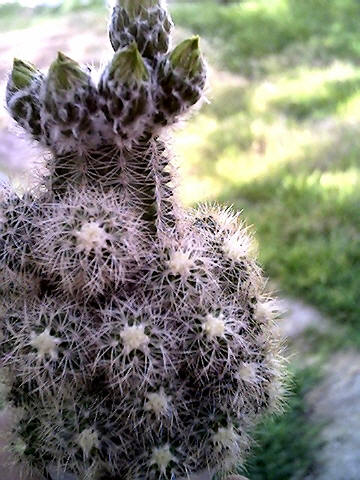
Photo By Pal Vajda (Hungary) |

Echinocereus
reichenbachii var. baileyi
foma albispinus
Troy. Oklahoma. USA
Remarks: The taxonomic and geographic boundaries among the
segregate species or infraspecific taxa of Echinocereus reichenbachii
remain nebulous and controversial. In no place do pure populations exist
sympatrically, and all taxa appear completely interfertile.
|
|
Advertising
|
|
|
|
|
|
|
Family:
Cactaceae (Cactus
Family)
Scientific name:
Echinocereus
baileyi var. albispinus (Lahman) Backeberg
Origin:
USA (Oklahoma)
Conservation status: Listed in
CITES appendix 2.
Synonyms:
- Echinocereus
reichenbachii ssp. baileyi (Rose) N.P.Taylor
- Echinocereus reichenbachii var. albispinus (Lahman)
L. Benson
Echinocereus reichenbachii var. albispinus
- Echinocereus albispinus Lahman
- Echinocereus baileyi Rose
|
|
Description: Solitary or branching from
the base,
Stems: Cylindrical, 10-20 cm or more in height and has a diameter
up 4- 9 cm.
Ribs: About 15 acute, slender or sometimes arranged spirally,
bearing oval areoles.
Spines: No central spine; Radials: ± 16
needle-shaped, bristly spreading which point outward and downward,
white to delicately pinkish, 1-2 cm long.
Flowers: Funnelform magenta-pink close to the end of the stems of
the youngest areoles, which are white and woolly. 6-12 cm in diameter.
|
|
|
|
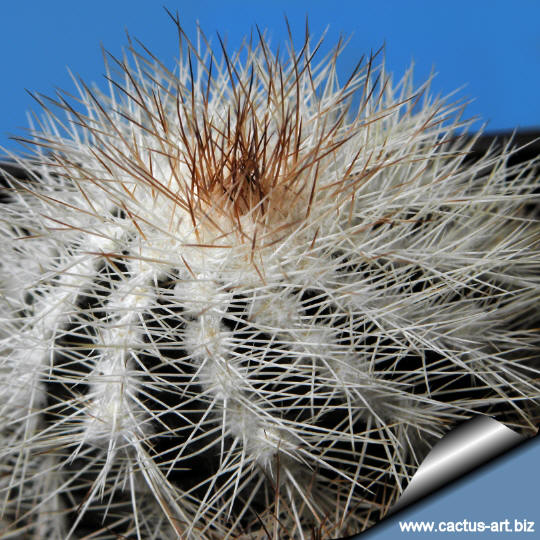
Cultivation: This
cacti, native to the Great Plains, whether found growing directly in the
grasslands or in rock outcroppings, are among the most frost and
moisture tolerant. In culture E. baileyi is
without problems and regularly shows its large purple flowers if we
provide an adequate winter rest period. It grown well in an
unheated greenhouse, but this species can survive in a protected bed as
well. Very cold resistant
hardy to -30° C or less for short periods of time. It needs
good drainage. Keep drier and cool in winter. Need full sun.
Propagation: Seeds or cutting as it branches
freely from the base.
Photo of conspecific
taxa, varieties, forms and
cultivars taxa
of
plants belonging to the
Echinocereus reichenbachii
complex
(This
Taxon
has lots of synonyms whit several controversial varieties and subspecies):

 |
|